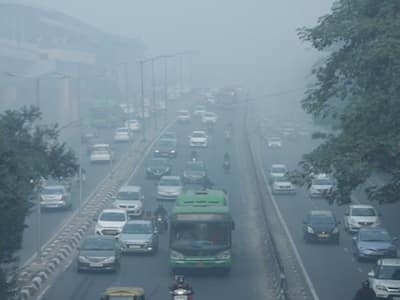VERIFIED

The effects of air pollution can be extremely harmful to our bodies and we have to take every step possible to counter pollution from our end.
Air Pollution has risen to the top as the single, most common cause for various health concerns for the population of Delhi/NCR. The higher the AQI, the more health issues are present in a hospital’s OPD. If you think the pollution outside is only affecting your lungs, think again.
It is proven that the most dangerous pollutant is PM2.5 along with worrying levels of carbon monoxide, nitrogen oxides and sulphur oxides. The increasing levels of these pollutants in the air essentially makes it a Gas Chamber and makes the Air Quality Index (AQI) worse and extremely unfit to breathe in. The particulate matter stays suspended in the air during the months of November and December especially in the mornings and evenings because of the decrease in air flow due to fog. Coupled with smoke from the vehicles, dust and toxins, this air becomes Smog (Smoke + Fog) and is highly toxic and hazardous for all age groups.
Effects of pollution on your body
Pollution manifests in various forms in our bodies
- Headaches People often complain of moderate to high headaches. Pollution can also trigger migraine headaches along with dizziness and nausea in some.
- Redness in the Eyes – Burning sensation, excessive watering and itching in the eyes causing redness and making them dry. One of the factors contributing to headaches.
- Ear, Nose and Throat Exposure to toxic air leads to sinusitis, cold, rhinitis, sore throat and these problems appear with the rise in AQI and it also causes irritation in the nose and throat.
- Heart – Pollution leads to a spike in blood pressure and exaggerated symptoms or pre-existing heart conditions.
- Lungs – Being exposed to pollutants in the long haul and breathing toxic air leads to infections and disorders of the lung such as acute bronchitis, COPD, pneumonia and asthma.
- Stomach A range of gastrointestinal diseases, including Irritable Bowel Syndrome, Inflammatory Bowel Disease (IBD), Appendicitis, and enteric Infections in infants are caused on exposure to pollution.
- Kidneys Long term exposure to pollution can harm your kidneys and cause chronic kidney disease, severely impacting the renal functions.
- Liver Harmful levels of pollutants in the environment can induce liver toxicity and act to accelerate liver inflammation (hepatitis) and steatosis (fatty liver).
Tips to keep you safe
Here are some preventive measures for you and your loved ones
- Consultation with a Healthcare Professional – if the symptoms persists or if there is any difficulty in breathing, you must consult a healthcare professional at the earliest.
- Wear a N95 Mask Wearing N95 face masks whenever outside can prevent harm to your lungs. Avoid stepping out during peak traffic hours and avoid exercising outdoors when the AQI is high.
- Gargle with Lukewarm water It helps soothe your throat and tonsils and removes toxins lodged in your throat.
- Hydration is key Drinking plenty of fluids keeps the kidneys active and enriches the body with electrolytes.
- The Indoor AQI Using air purifiers or HEPA filters would help improve the indoor air quality. Some plants that help purify the air can be a great aesthetic to your home and office.
- Deep Breathing Exercises Helps keep the lungs healthy by increasing the lung volumes and lung capacities.
In conclusion, the effects of air pollution can be extremely harmful to our bodies and we have to take every step possible to counter pollution from our end. We must look after our families and keep a close watch on the symptoms. Climate Change is an imminent threat and, with pollution levels so high, it will only get worse in the coming years.
(This article is authored by Dr. Bandana Mishra, Head of Department & Senior Consultant, Pulmonology, Sanar International Hospitals)
Post source: The Health Site




